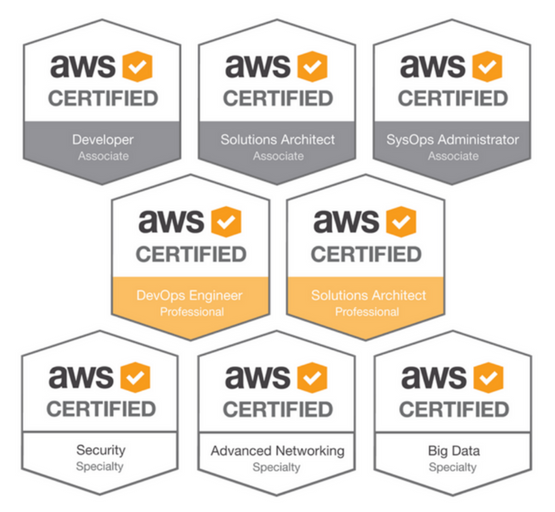G’day guys!
In this post, I’m gonna give you 5 reasons why you should get certified this year. Well, not quite this year since it’s almost Christmas, but you know what I mean. And by certified, I mean obtaining any certification from a reputable provider relevant to your field that you don’t already have.
Hold on, why should I listen to you about this anyway?
A fair question. Well, I currently have an MCSA in Web Applications from Microsoft (which has 2 exam pre-requisites), and an AWS Solutions Architect: Associate certification. That’s not a huge number of certs, but it’s a few. I’m also a Senior Software Engineer at what’s probably the largest legal software firm in the world. On a Venn Diagram, I think that put’s me in exactly the right position to give good advice about certification: somebody with certifications, and somebody who is doing reasonably well career-wise.
Okay, let’s start with my list!
1. Stand out from the crowd
Certifications (at least in the IT / software engineering field) are literally shiny, digital badges that you can attach to a resume, LinkedIn profile or blog (like mine) that visually distinguish you from your peers. Now I’m definitely not saying that you’ll get hired because of a certification or that you’ll earn more money with a certain certification vs not having it, and I couldn’t find any statistics suggesting so, either. But if a company is after a C# developer for example, and you just so happen to have passed Microsoft’s C# exam and have that shiny badge on your resume, your profile should at least get some consideration from whoever is doing the search. Certifications definitely don’t make up for hands-on, on-the-job experience, but they do validate it, and consolidate it into a single badge that you can show off. Like this!
2. Fill in gaps of knowledge
Okay, let’s just assume that certifications don’t have any significant impact on your ability to be hired or promoted - which may be true. I’ve done 3 certifications at the time of writing this, and each time, I’ve learned a lot simply in studying for the test. This is due to the fact that there is typically more to a particular technology than you’ll use day-to-day at your job, so you probably won’t get a chance to learn everything purely hands-on. Now sure, you could acquire that knowledge without taking the exam, and even study for the exam without actually taking it - but why go to all that trouble without validating what you’ve learned?
3. Licencing benefits
If a company has x employees with y certifications from z technology provider, they’ll typically be able to acquire software licences and receive other benefits from the provider, so there is an incentive for the company to either hire people with certain certifications, or encourage them to get it. This means that if you’re applying to work at a Microsoft / .NET house, your certification might just be the one to get that company into the Silver or Gold Partner Program, and that can only work in your favour as far as hiring and compensation goes. Or even if it doesn’t affect your employability or compensation, you company should still reimburse you for the expense of the exam, since it’s going towards them getting cheaper rates for licences and other perks. And by that point, it’s just a free certification!
4. Company image

If you ever happen to communicate via email to people outside of your organisation, it can be great for your company’s image to include some of your reputable certifications in your email signature, just to show the world that your company has well-trained, qualified people on hand. It might even look good for communication within your organisation, to show everyone that you know your stuff. I’m not saying that it could get you promoted - but it can’t hurt, right?
5. Goals and learning objectives
Okay, let’s say that you’re shaking your head up to this point, vehemently disagreeing with everything you read. Well, thanks for sticking around! I think you may agree on this last point. If nothing else, exams are motivating. You’ve booked in a date and put money on the line - so you’re now financially committed, and have a deadline, the combination of which is a great motivating factor. So if you’d like to learn a new programming language, framework or technology but can’t seem to find the motivation to actually do it, why not book an exam for certification 6 months down the line? Now you’ve got 6 months to study for that test, or it’s money down the drain. Worth a try?
And that’s it! What did you think? Do you have any other reasons to get certified that I haven’t covered, or do you have any reasons not to get certified? Let me know in the comments. Catch ya!
